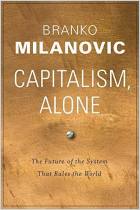Join getAbstract to access the summary!

Join getAbstract to access the summary!
Daniel Pinto
Capital Wars
The New East-West Challenge for Entrepreneurial Leadership and Economic Success
Bloomsbury, 2014
What's inside?
The West must look past this quarter’s results and make long-term decisions.
Recommendation
Daniel Pinto presents a clear-eyed, practical takedown of modern capitalism in this study of the challenges facing Western economies. Pinto sides neither with the low-tax, limited-government prescriptions of the right nor with the add-more-government pleas of the left. He does acknowledge that government intervention plays a historic role in the rise of the US economy. Pinto points out that the state-managed economies of China and other emerging markets post enviable growth rates despite government meddling. Another main theme: Investors’ and managers’ thinking is so short-term that managers risk their careers when they look past the next quarter’s results. Alas, this elegantly written lecture suffers from distracting punctuation errors and occasional misspellings. While always politically neutral, getAbstract recommends Pinto’s incisive, and sometimes controversial, views to students, entrepreneurs, policy makers and investors seeking an alternative – but still profitable – approach to today’s Western capitalism.
Summary
About the Author
CEO of the asset management firm Stanhope Capital, Daniel Pinto founded the New City Initiative think tank.




















Comment on this summary